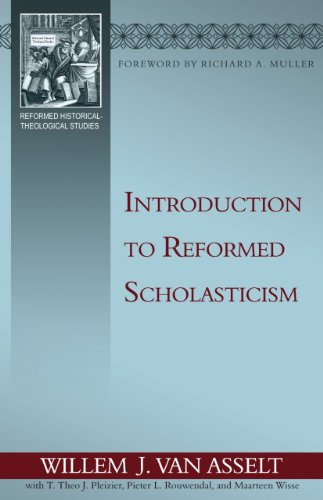Introduction to Reformed Scholasticism

Abstract
This work supplies a long-standing need in the field of early modern studies by providing a basic introduction to Reformed Scholasticism. Although technical studies abound and interest in the subject continues to rise, until the appearance of this work by Willem van Asselt and his colleagues, students of history have lacked a concise guide to help them navigate the difficult waters of Reformed Scholasticism. This book carefully defines the phenomena of scholasticism and orthodoxy, concisely surveys the era, notes the most significant thinkers together with the various trajectories of thought, and references the relevant secondary scholarship. In short, this ‘Introduction to Reformed Scholasticism’ surveys the topic and provides a guide for further study in early modern Reformed thought. Table of Contents: Introduction: What Is Reformed Scholasticism? – Willem J. van Asselt and Pieter L. Rouwendal The State of Scholarship: From Discontinuity to Continuity – Willem J. van Asselt and Pieter L. Rouwendal ‘As the Philosopher Says’: Aristotle – T. Theo J. Pleizier and Maarten Wisse The Teacher of the Ancient Church: Augustine – Maarten Wisse The Method of the Schools: Medieval Scholasticism – Pieter L. Rouwendal ‘Open Hand and Fist’: Humanism and Scholasticisim in the Reformation – Willem J. Van Asselt Distinguishing and Teaching: Constructing a Theological Argument in Reformed Scholasticism – Willem J. van Asselt and Pieter L. Rouwendal Scholasticism in the Time of Early Orthodoxy (ca. 1560-1620) – Willem J. van Asselt Scholasticism in the Time of High Orthodoxy (ca. 1620-1700) – Willem J. van Asselt Scholasticism in the Time of Late Orthodoxy (ca. 1700-1790) ‘The Abutment against Which the Bridge of All later Protestant Theology Leans’: Scholasticism and Today – Willem J. van Asselt